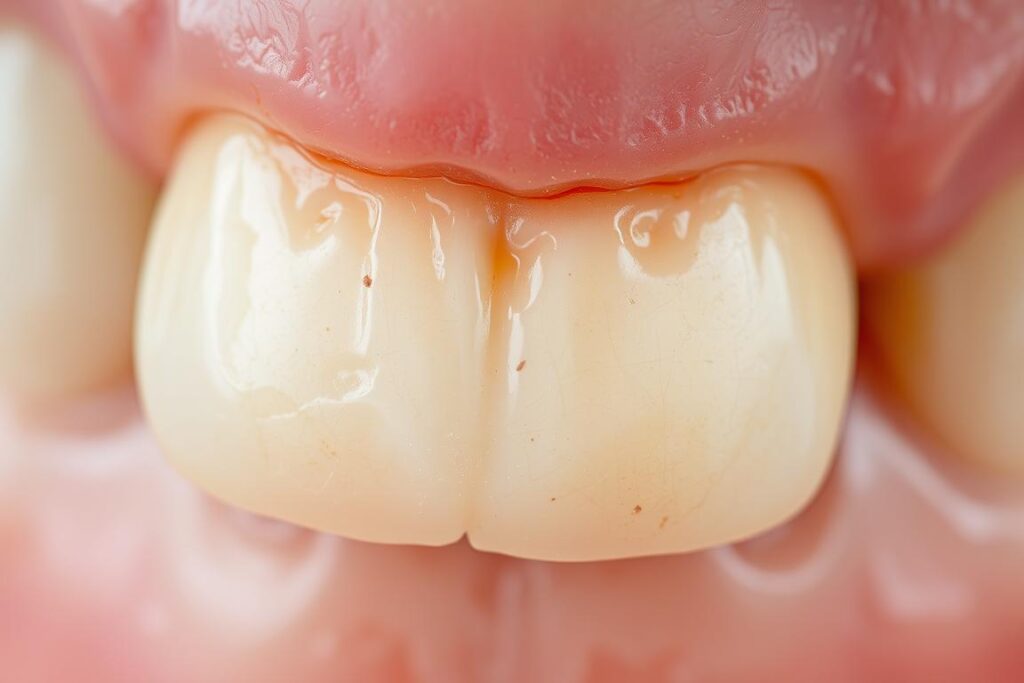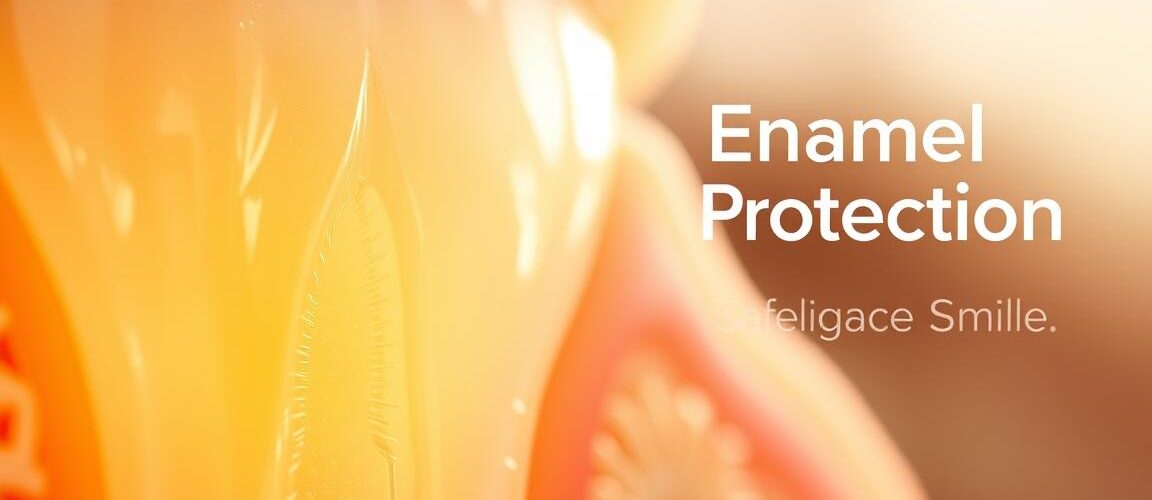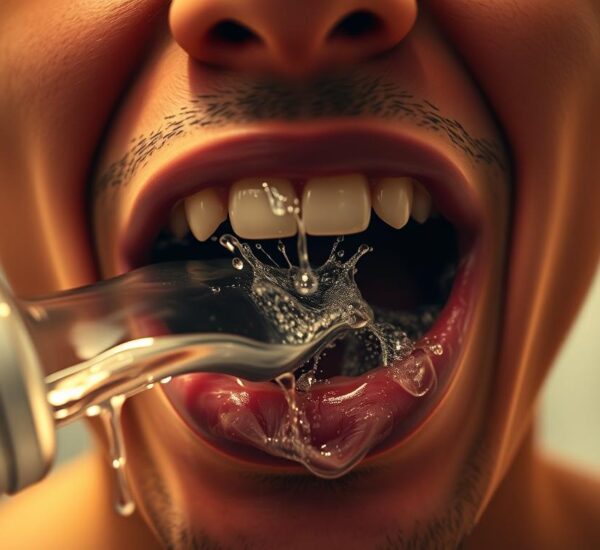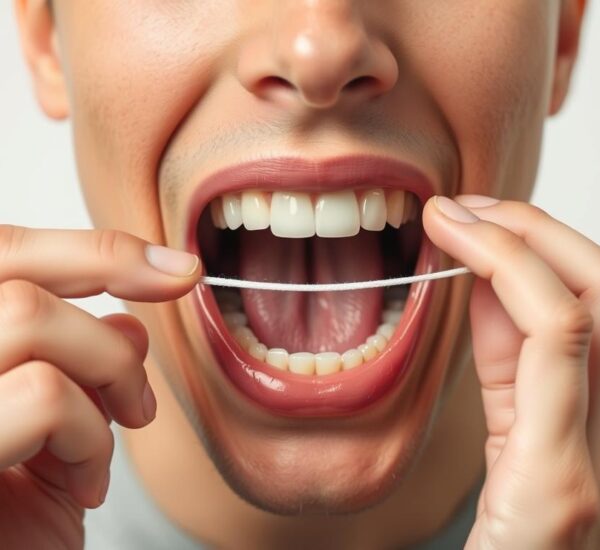Tooth enamel is the hardest part of our body. It protects our teeth from daily damage. The National Institute of Health (NIH) says it’s almost as hard as steel, ranking around 5 on the Mohs hardness scale.
But, unlike steel, enamel can’t grow back once it’s lost. Knowing how important it is is the first step to safeguarding our smile. We’ll look at why enamel health matters and how to keep it strong.
With the right care, we can keep our smile healthy and confident. By knowing what harms our enamel and acting early, we can keep it strong for a long time.
Key Takeaways
- Tooth enamel is the hardest substance in the human body.
- Enamel doesn’t regenerate once it’s damaged.
- Proper care is essential for maintaining enamel health.
- Effective oral hygiene practices can strengthen enamel.
- A healthy diet contributes to enamel protection.
What Is Enamel and Its Importance?
Enamel is the hard outer layer of our teeth. It’s the hardest part of our body and key to our oral health. It protects the inside of our teeth from daily wear and tear.
Tooth enamel is mostly minerals, like hydroxyapatite, making it very strong. But, it can get damaged by different things.
Understanding Enamel Structure
Enamel’s structure is complex and full of minerals. It’s mainly hydroxyapatite, which makes it hard and durable. Knowing about enamel’s makeup helps us see its importance in our teeth’s health.
Key characteristics of enamel include:
- High mineral content (primarily hydroxyapatite)
- High hardness and durability
- Translucent appearance
The Role of Enamel in Oral Health
Enamel is vital for protecting our teeth. It blocks harmful acids and bacteria that can lead to cavities. It also covers the sensitive inner layers of the tooth, making our teeth less sensitive and keeping them white.
Good enamel care and tooth enamel protection are key for keeping our enamel strong. This includes ways to prevent erosion and damage.
Common Threats to Enamel
Our teeth’s enamel, the protective layer, faces many challenges every day. Despite its strength, it can wear down from various factors. This can lead to cavities, sensitivity, and discoloration. Knowing these threats is key to keeping our enamel strong and our smile healthy.
Acidic Foods and Beverages
Drinking acidic foods and drinks, like citrus fruits, soda, and wine, can harm enamel. The acids in these items weaken the enamel, making teeth more prone to decay and sensitivity. To protect your teeth, try to eat and drink less acidic foods and drinks. Also, rinse your mouth with water after eating or drinking acidic items.
Sugary Snacks and Tooth Decay
Sugary snacks can cause tooth decay. Bacteria in our mouths feed on sugar and make acids that harm enamel. Eating sugary snacks without brushing and flossing can damage enamel a lot. To keep your teeth healthy, brush regularly and eat fewer sugary snacks.
Grinding and Clenching Teeth
Grinding and clenching teeth can also damage enamel. This habit can expose the softer dentin underneath, causing sensitivity and tooth damage. Wearing a mouthguard at night can help protect your teeth from grinding.
| Threat | Description | Prevention |
|---|---|---|
| Acidic Foods and Beverages | Erodes enamel due to high acidity | Limit intake, rinse mouth with water |
| Sugary Snacks | Contributes to tooth decay through acid production | Practice good oral hygiene, limit sugary snacks |
| Grinding and Clenching | Physically wears away enamel | Use a mouthguard, manage stress |
By understanding and tackling these common threats, we can protect our enamel. This ensures a healthier smile for us.
Signs of Enamel Erosion
Spotting early signs of enamel erosion is key to avoiding serious dental problems. Enamel erosion happens slowly and can cause big issues if not treated. We’ll look at the main signs that show enamel erosion is happening.
Increased Sensitivity to Hot and Cold
One early sign is feeling more pain when eating or drinking hot or cold things. This is because the enamel is wearing off, exposing the dentin underneath. This can cause sharp or dull pain, depending on how much erosion there is.
Visible Indentation or Transparency
As enamel erodes, your teeth might look different. You might see indentations or notice they look more transparent. This is because the enamel is getting thinner, making teeth more prone to decay.
Discoloration and Staining
Discoloration and staining are also signs of enamel erosion. When enamel wears off, the dentin underneath, which is naturally yellow, shows. This can make teeth look yellow. Also, the dentin can stain more easily, making teeth look worse.
| Signs of Enamel Erosion | Description | Implications |
|---|---|---|
| Increased Sensitivity | Sensitivity to hot, cold, or sweet stimuli | Exposure of dentin, possible pain |
| Visible Indentation or Transparency | Noticable changes in tooth appearance | Higher risk of tooth decay |
| Discoloration and Staining | Yellowing or staining of teeth | Looks bad, can stain more |
It’s important to notice these signs to keep your enamel healthy. If you see any of these, see your dentist. They can help you avoid needing more serious treatments.

Effective Ways to Protect Your Enamel
Keeping your enamel strong is vital for a healthy smile. To protect your enamel, you need to follow good oral hygiene, make smart lifestyle choices, and get regular dental care. By using the right strategies, you can lower the chance of enamel erosion and dental problems.
Choosing the Right Toothpaste
Choosing a toothpaste with fluoride is key for enamel protection. Fluoride helps strengthen weak enamel, making it better at fighting acids. Always pick a toothpaste with the American Dental Association (ADA) Seal of Acceptance. This means it meets dental health standards.
Incorporating Fluoride Treatment
Using fluoride toothpaste is just the start. Adding fluoride treatments to your routine can give you extra protection. These treatments can be done at home or at the dentist. They make your teeth stronger, helping them fight off decay and erosion better.
Regular Dental Check-ups
Going to the dentist regularly is important for your teeth’s health. Your dentist can spot early signs of enamel erosion and give you advice. They can also clean your teeth and check on your enamel’s health.
Dietary Choices for Stronger Enamel
What we eat affects our enamel’s strength. Eating foods rich in certain nutrients can make our enamel stronger. This makes it more resistant to decay and erosion.
To get stronger enamel, we should eat foods that are good for our teeth. Here are some tips:
- Calcium and Phosphorus-rich Foods: Dairy products like milk and cheese are full of calcium and phosphorus. These are key for enamel strengthening.
- Staying Hydrated: Drinking water all day helps clean our mouth. It gets rid of harmful bacteria and acids, helping with enamel care.
- Limiting Acidic and Sugary Foods: Eating less acidic and sugary foods and drinks helps prevent enamel erosion.
Foods Rich in Calcium and Phosphorus
Foods high in calcium and phosphorus are important for enamel strengthening. These minerals help rebuild and strengthen tooth enamel.
Some examples include:
- Dairy products like milk and cheese
- Nuts and seeds
- Leafy greens
Staying Hydrated with Water
Water is key for our oral health. It washes away food particles and neutralizes acids. Drinking water is a simple way to help with enamel care.
Limiting Acidic and Sugary Intake
We should eat less acidic and sugary foods and drinks. These can cause enamel erosion and tooth decay if not controlled.
Some things to cut down on include:
- Soda and sugary drinks
- Candy and sweets
- Citrus fruits and juices in excess
Habits to Avoid for Enamel Safety
To keep our smile healthy, we must avoid habits that harm our enamel. Daily actions can weaken our enamel defense, causing sensitivity and decay.
Nail biting and teeth grinding are big no-nos. Grinding can make teeth weak and more prone to damage. Stopping these habits helps protect our enamel repair efforts.
Nail Biting and Teeth Grinding
Nail biting and teeth grinding are bad because they apply too much pressure. This can wear down enamel, exposing the softer dentin underneath. This leads to sensitivity. To prevent this, wear a mouthguard at night and try to stop biting your nails during the day.

Using Teeth as Tools
Using our teeth to open things or bite nails is harmful. It can cause chipping or cracking, which weakens enamel. It also lets bacteria into the tooth. Avoiding these actions helps protect our teeth and supports enamel repair.
Skipping Oral Hygiene Routines
Not brushing and flossing regularly can lead to plaque and tartar buildup. This weakens enamel by exposing it to acid from bacteria. Brushing with fluoride toothpaste and flossing daily are key to removing plaque and supporting enamel defense. Keeping up with these habits reduces enamel erosion risk.
Knowing and avoiding these habits helps protect our enamel. This keeps our smile healthy and boosts our confidence.
Innovative Products for Enamel Protection
To keep your smile safe, using the right products is key. There are many items out there that help protect and strengthen our enamel. This keeps our smile healthy and confident.
Enamel-Safe Mouthwashes
Using a mouthwash safe for enamel is a smart move. Fluoride mouthwashes, for example, can make weak enamel stronger. They fight off acid attacks. When picking a mouthwash, look for fluoride. It’s great for enamel restoration.
Advanced Toothbrush Technology
Modern toothbrushes, like electric ones, are also important for enamel maintenance. They clean better than regular toothbrushes, cutting down on enamel damage. Some even have sensors and timers to prevent too much pressure.
Professional Strength Prescription Products
For extra protection, try professional strength products. Custom night guards, for instance, shield enamel from grinding at night. They’re made just for you, helping with specific oral health issues.
Adding these products to your daily routine boosts enamel protection. It’s about picking the right tools and products for you. This way, your enamel stays strong and healthy.
The Role of Routine Dental Visits
Going to the dentist regularly is key for enamel protection. Cleanings remove plaque and tartar, which can harm enamel and cause oral health issues.
Importance of Professional Cleanings
Professional cleanings are essential for dental care. They remove plaque and tartar, preventing gum disease and other problems. This helps a lot in avoiding enamel erosion.
Custom Recommendations from Your Dentist
Your dentist can give you custom recommendations based on your needs. This advice helps tackle specific issues like sensitivity or erosion. It helps create a plan to keep your enamel safe.
| Aspect of Dental Visit | Benefit to Enamel Health |
|---|---|
| Professional Cleanings | Removes plaque and tartar, reducing erosion risk |
| Custom Recommendations | Personalized advice for specific oral health concerns |
| Monitoring Enamel Health | Early detection of enamel erosion and preventive measures |
By watching your enamel health over time, you can spot issues early. This lets you take steps to stop further damage. Regular dental visits help keep your smile healthy and strong.
Monitoring Enamel Health Over Time
Regular check-ups let your dentist keep an eye on your enamel’s health. This is important for catching any changes or problems early. It allows for quick action to protect your enamel.
Conclusion: Your Path to a Healthier Smile
Keeping your smile healthy is possible with the right care. Good oral hygiene, smart lifestyle choices, and regular dentist visits are key. They help keep your enamel strong and your smile confident.
Best Practices for Enamel Care
Choosing the right toothpaste and using fluoride treatments are important. Avoiding habits like nail biting and teeth grinding also helps. These steps can strengthen your enamel and prevent erosion.
Take Action for a Healthier Smile
Make your oral health a priority. Follow the tips in this article to get a healthier, more confident smile. Using enamel-safe mouthwashes and advanced toothbrushes can also help.



